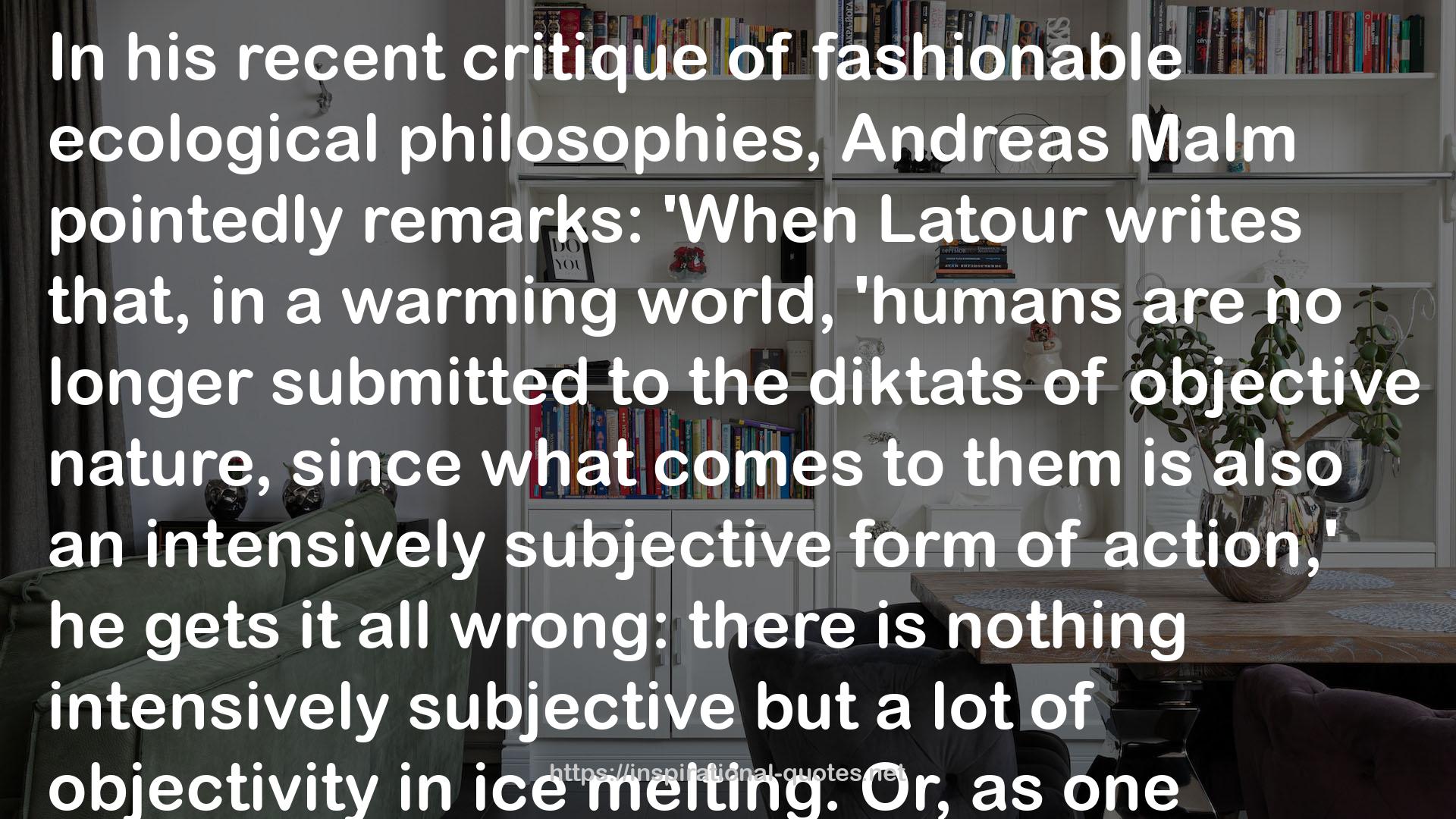" In his recent critique of fashionable ecological philosophies, Andreas Malm pointedly remarks: 'When Latour writes that, in a warming world, 'humans are no longer submitted to the diktats of objective nature, since what comes to them is also an intensively subjective form of action,' he gets it all wrong: there is nothing intensively subjective but a lot of objectivity in ice melting. Or, as one placard at a demonstration held by scientists at the American Geophysical Union in December 2016: 'Ice has no agenda - it just melts.''
The reverse claim is that human interventions have only had such a menacing and even fatal consequences for our living conditions within the Earth system because human agency has not yet sufficiently freed itself from its dependence on natural history. This seems to be the conviction behind the 'Ecomodernist Manifesto,' for instance, which claims that 'knowledge and technology, applied with wisdom, might allow for a good, even great, Anthropocene,' and that a good Anthropocene 'demands that humans use their growing social, economic, and technological powers to make life better for people, stabilize the climate, and protect the natural world.'
In this confrontation, an age-old dualism has assumed a new guise: the attempt to establish a complicity with the forces of destiny - if necessary at the price of surrendering human subjectivity or perhaps involving other forms of self-sacrifice - is juxtaposed with the attempt to achieve human autonomy by subordinating the planet under the superior power of human ingenuity. These two positions, a modernist stance and a position critical of it, are usually considered to represent mutually exclusive alternatives. Actually, however, the two positions have more in common than first meets the eye.
At the beginning of chapter 3, I referred to Greek philosophers who suggested that the best way to protect oneself against the vicissitudes of fate was to learn how to submit oneself to it willingly, sacrificing one's drives and ambitions while expecting, at the same time, that this complicity with destiny would empower one to master worldly challenges. What unites the seemingly opposite positions, more generally speaking, is a shared move away from engagement with the concrete and individual human agency (i.e., with empirical human subjects and with the unequal power distribution in human societies) toward some powerful form of abstraction, be it 'to distribute agency' or to use the 'growing social, economic, and technological powers' of humanity for a better Anthropocene. I suggest that we take a more systemic look at the role of humanity in the Earth system, taking into account both its material interventions and the knowledge that enabled them. "
― , The Evolution of Knowledge: Rethinking Science for the Anthropocene
